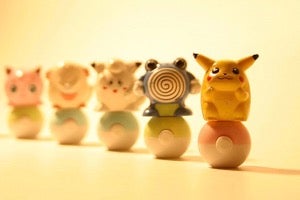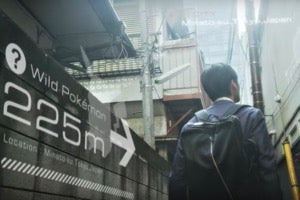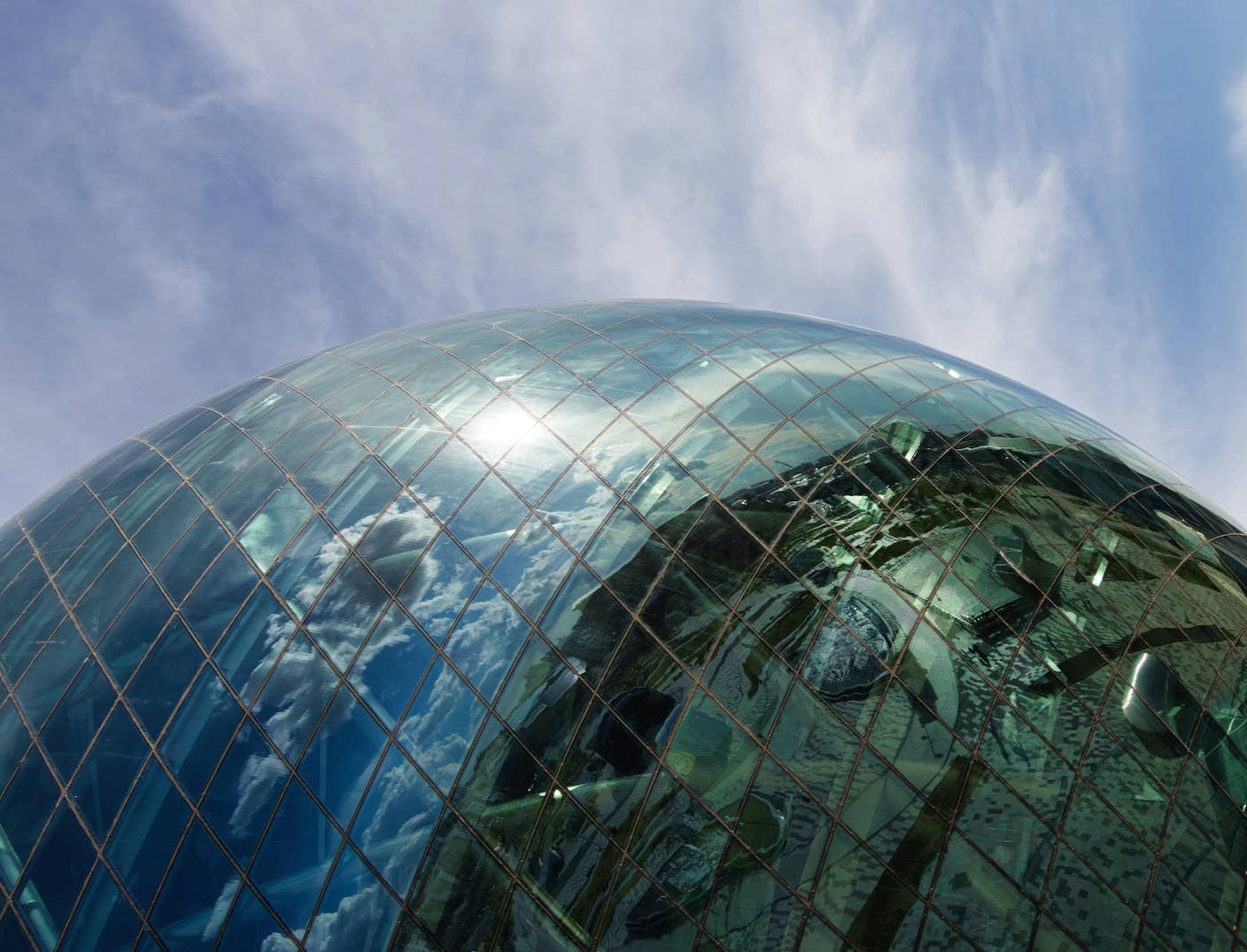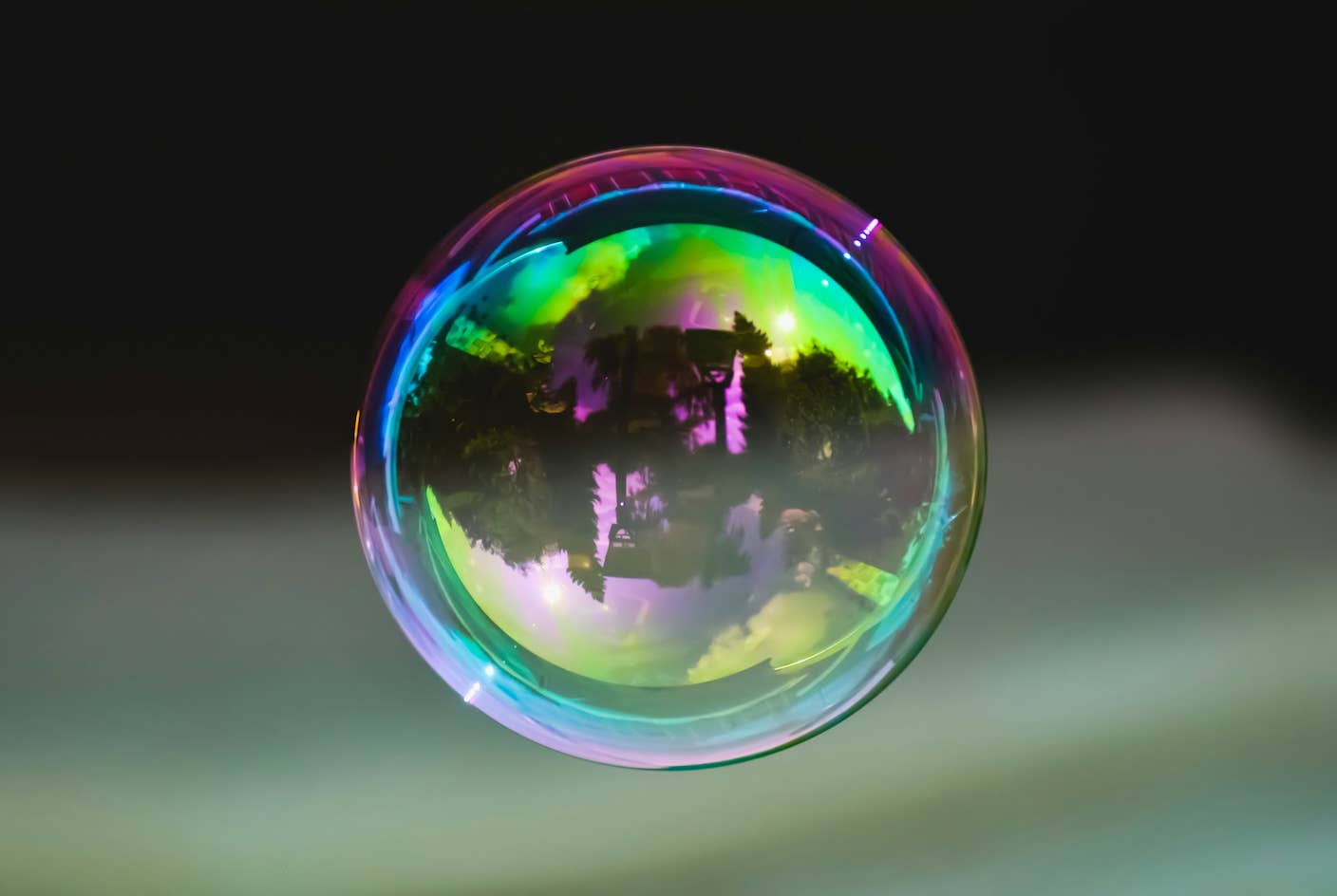Pokemon Go Is a Glimpse of Our Augmented Reality Future

Share
As every child knows, the world is a place of wonder, magic and adventure.
A walk through the forest becomes a journey into the lair of an ancient dragon or a hunt for ancient treasure. An abandoned house is consumed by dark spirits who must be avoided. An old wardrobe is a portal to another world.

I wonder what’s out there.
When we were young these stories became as real to us as the ground beneath our feet. And although growing up has bestowed upon each of us a wealth of experience, knowledge and hopefully wisdom, I sometimes feel that the greatest tragedy of growing older is the loss of connection to these stories and possibilities all around us.
The myths and legends used to feel so real. They were defining aspects of who we were and how we interacted with the world around us. And I for one miss them greatly.
Which is why I am thrilled to tell you that not only can we reclaim this feeling, we can use it to create incredible works of consensus realities which will bring us entertainment, excitement, and hopefully, hopefully a deeper connection with others and ourselves.
I Want to Be the Very Best, Like No One Ever Was
“Dude, you’ve got to turn around—I need to catch that Diglet.”
When I said these unlikely words, I didn’t realize I was bringing back a feeling which seemed lost somewhere deep in the past. I was finally fulfilling one of the great childhood dreams of myself and millions of others. I was a real life Pokémon trainer, on the hunt for my next catch.
That is how I spent an hour of my life driving through Northern Virginia, stopping only to capture Pokémon and battle other trainers at gyms. And I was hooked. In the days since then, I’ve become a dedicated trainer, dashing through the city on my quest to be the very best.
The catalyst for my excursion was, of course, Pokémon Go, a mobile game recently released by Nintendo. Pokémon Go is no traditional Pokémon game, where players use a handheld gaming system to explore a digital world. Instead, it creates an augmented reality experience which turns the real world into the game map. Instead of exploring a virtual world to capture our Charizards and Venomoths, we have to venture out and explore the real world.
Pokémon Go is already a huge phenomenon and is well on its way to overtaking Twitter in terms of daily active users. By now, you’ve probably seen almost as many articles about Pokémon Go as I’ve seen Pidgeys in the game (quite a lot).
So, what’s the big deal? Is this the next Flappy Bird, or are we witnessing the birth of a new medium?
There’s no simple, singular reason why Pokémon Go is taking the world by storm. There have been location based games before. There have been Pokémon games before.
Pokémon Go captured lightning in a bottle because it is making us believe in stories again.
Deus Ex Machina: Augmented Reality Gaming IRL
Pokémon Go turns everything we know about gaming on its head. You’ve likely heard of massively multiplayer online videogames like World of Warcraft. Pokémon Go is different. It’s a massively multiplayer real life videogame (RL game). RL games have the power to take our beloved stories and franchises and bring them to life. Not only that, they can add a sense of depth, awareness, and somewhat ironically, mindfulness about the real world.
On my journeys through Washington, D.C. frantically hunting down Pokémon, something funny has happened. I’ve felt a much deeper sense of connection to the real world around me. I’ve noticed landmarks, paintings and statues that I have walked by 1,000 times without glancing at. I’ve explored neighborhoods that I’ve never gone to before. And I’ve had more friendly conversations with strangers around the city than in the previous six years combined.

Let’s be clear, Pokémon Go is very much the infancy of this. The underlying mechanics are extremely simple, social features are next to nonexistent and the “AR” mode for capturing Pokémon doesn’t even try to make sense of the world around you.
Which is all the more incredible that Go is the single most compelling digital experience I’ve had in the past two years.
For so long, our most immersive and exciting media has demanded immobility. Our videogames and movies, our TV shows and books. These are all fantastic mediums which scream at us: “Come and get absorbed for a few hours! Leave the real world and your troubles behind!”
But RL games are here to say, “Let’s go explore the real world together. Come on, I’ll help you out.” And in doing so, they’ve started to bring back our stories.
Hopefully, RL games can help us again dream of a world of enchanted forests, hidden treasure and the glory of a storied adventure right here in our very own world.
And we’re just getting started.
Tearing Down the Walls Between the Digital and the Real
There is one problem above all others that drags Pokémon Go down. It’s not the simple game mechanics. And it’s not the spotty AR integrations.
Playing Pokémon Go on a smartphone is like trying to play World of Warcraft on a graphing calculator.
Walking around town hunting Pokémon is a joyful, thrilling experience. Having to constantly hunch over and look at your phone isn't just annoying, it fundamentally disrupts the experience that Go could and will someday become.
Pokémon Go cries out to be played on an augmented reality headset like the Hololens or Magic Leap. And this fact is certainly not lost on the developers, who have already stated their goals of integrating new tech into the game as it hits the market.
That doesn’t just mean augmented reality. In fact, there’s another technology that might become just as key to the future of RL gaming: artificial intelligence.
AI: Bringing the Magic to Life
The most important thing to remember about the stories that we told when we were young is that they were deep. Even more, they were wild. We didn’t know all of the rules. And to be honest, we didn’t really want to.
That’s simply not possible with games today. Our games are wide and expansive, with massive worlds to explore. But they’re flat—predictable systems running off of predictable human algorithms. RL games are the same way, running off of the same predictable experience.

And this, if anything, may be the downfall of the first generation of AR games. The smartphone problem can be overcome, but for Pokémon Go to really work, it needs to get smarter.
Luckily we know it can. Funnily enough, the answer comes from another game called Go.
Earlier this year, Google’s Deepmind beat the top human player of the board game Go for the first time. This was a watershed moment in the history of AI. For years, beating Go was considered to be THE top goal in AI research. And Google didn’t just win, it created an AI that played with its own distinct style and creativity.
Here’s the thing, when AI comes to Pokémon Go, we won’t just play against it. AI will be running the game. The AI gamemaster will know that deeper forests contain bigger monsters. That you’re more likely to catch a Squirtle in a rain squall. That you may even have to trek to a volcano to catch that Dragonite.
Let’s imagine what Pokémon Go (and other games like it) might look like five years from now.
- Augmented Reality Makes It Real: No one is going to be playing Go or any other RL game on their phones once AR headsets hit the market. By dropping the smartphone and integrating augmented reality as the primary platform, we will fundamentally dissolve the walls dividing the physical and the digital.
- Machine Learning Powered Magic: RL games will adopt the best learnings of artificial intelligence to create scenarios which are surprising, delightful and deep. We’ll really feel like we are exploring wild, vibrant worlds rather than the wide but flat experiences of today.
- Customized VR Locations: Augmented reality headsets will be great for the day-to-day operations of RL games. But sometimes you’re going to need to go on special quests and missions which require more immersiveness. Luckily, VR theme parks like The Void will fill this gap, combining real life locations with fully immersive virtual reality experiences. Think “escape the room” games meet The Matrix. You’ll wear top-of-the-line VR gear and drop into hand-crafted virtual experiences that bring the game fully to life.
Be Part of the Future
Sign up to receive top stories about groundbreaking technologies and visionary thinkers from SingularityHub.


- Deep Social Ties: Many people will play these RL games on nights and weekends with their friends. We’ll roam around our cities, adventuring and socializing. The bond of the game will make it much easier and more common to interact with strangers, and there will be strong communities within each reality (although, people being people, this will also lead to some malicious actions).
- Physical and Mental Benefits: The physical benefits are obvious — these games will require you to be at least a little active. The mental benefits will be more subtle, but probably more important in the long run. Gaming is already being tested as a treatment for depression and anxiety. RL Games will be extremely effective for this. In fact, there are already several posts on Reddit from people who say that Pokémon Go is helping them battle depression and even suicidal thoughts.
That’s where we’re heading. But RL gaming isn’t just the future. It’s here today.
Bringing the Stories Back
“There are neither beginnings or endings to the turning of the Wheel of Time. But it was a beginning.” – Robert Jordan
In my few days with Pokémon Go, it has already moved me more than most, and I’ve gone from cautiously optimistic to a true believer. And there’s one reason for that. I found my story.
I’m two blocks away from my house catching my twelfth Ratatta of the day with my roommate. Suddenly, a man on a bike pulls up beside us.
“You guys playing Pokémon Go?” he asks with a huge grin.
“You know it buddy.”
We chat for a few moments, then comes the moment of truth.
“What team are you?” he asks.
“Mystic,” I shoot back without thinking (Go Team Blue!!).
“Ooooh, awkward,” my new friend responds jokingly. We’re on opposing teams. Suddenly, we both glance down at our phones. There’s an open gym at the nearby park. Only one of us can capture it.
“See ya later!” My new friend yells, racing off to capture the point. We feel a flash of defeat as we watch our coveted gym turn red, my opponent’s color.
Then, all of a sudden, it flashes blue.
As I walk up to investigate, a more powerful trainer emerges from the shadows.
“Team Blue?” he asks with a knowing smile.
“Of course,” I respond.
“Then come with me,” he says, running off. I follow him to the other side of the park to see a Venomoth, the rarest Pokémon I’ve ever encountered.
I had trouble catching it, but my new friend wouldn’t let me give up. Eventually, I got it.
“Great work, keep it up,” my Pokémentor yells, running off into the night, never to be seen again.
And that is my story. Through this game, I had an experience that seems ripped right from an episode of the Pokémon show. More than that it took me back to when my young friends and I would run through the woods, making our own stories feel more real than any TV show.
Not only that, in a time when it sometimes feels like our technology is pulling us further and further apart, I had incredible, authentic, and most importantly, human interactions thanks to this game. And I know there are many more.
But that’s just my story.
Go find your own.
Image credit: Yoshikazu Takada/FlickrCC; Gustave Doré/Wikimedia Commons; Shannon/FlickrCC; The Official Pokemon Channel/YouTube
Jason Ganz is the CEO of Agora VR, a company dedicated to spreading big ideas in virtual reality. He's a tech optimist and startup junky who is thrilled to be living in the most exciting time in human history. You can get in touch with him at @jasnonaz and follow his work @agoraVR. For consulting and speaking engagements please contact eta.im.
Related Articles

AI Companies Are Betting Billions on AI Scaling Laws. Will Their Wager Pay Off?

Super Precise 3D Printer Uses a Mosquito’s Needle-Like Mouth as a Nozzle

Is the AI Bubble About to Burst? What to Watch for as the Markets Wobble
What we’re reading